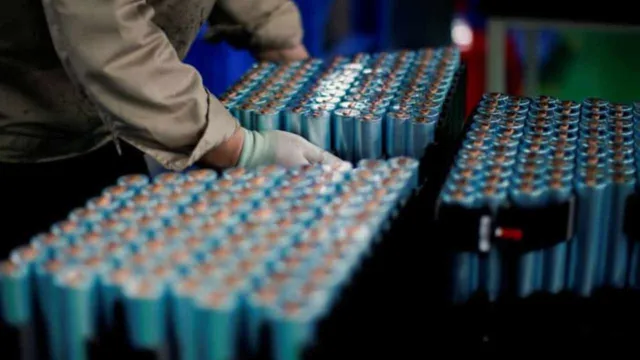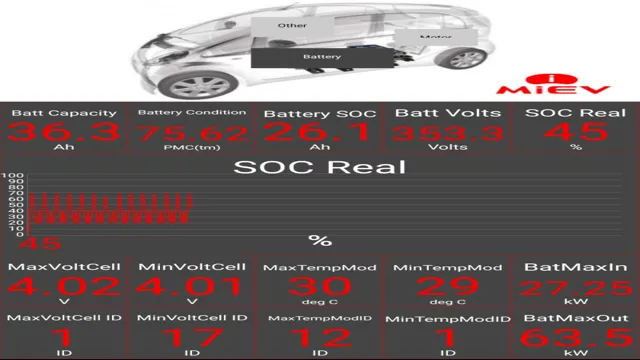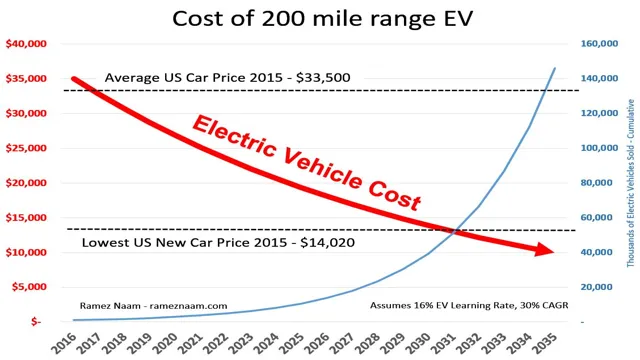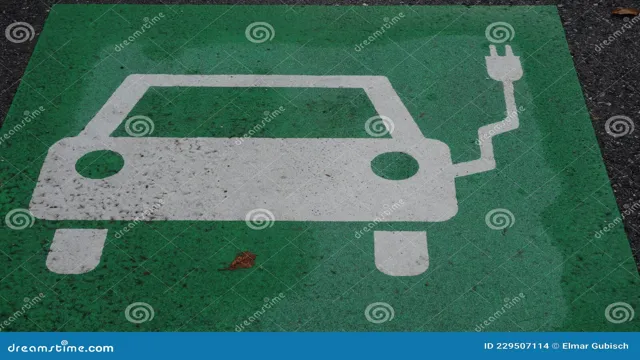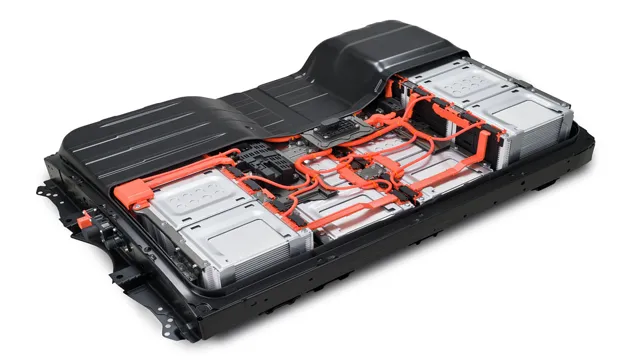Revving Up Your Recycling Efforts: Unpacking the Truth About Recycling Batteries from Electric Cars
Electric cars are the future of road travel, with their eco-friendly approach to transportation. The rise in the adoption of electric cars has led to a drastic increase in the demand for their batteries. While batteries are an intrinsic component of electric cars, their manufacturing and recycling process poses environmental challenges.
Recycling batteries from electric cars is an essential practice for sustaining the eco-friendliness of these vehicles. We’ll delve into the intricate process of recycling these batteries and how it contributes to environmental conservation. Are you ready to discover the essence of recycling electric car batteries? Read on!
Why electric car batteries need recycling?
Yes, it is crucial to recycle batteries from electric cars. These batteries are made up of toxic and hazardous chemicals, including lithium, cobalt, and nickel. They pose a significant risk to the environment when not properly disposed of.
Recycling electric car batteries not only protects the environment but also reduces the demand for mining new raw materials for making new batteries. The recycling process involves several steps, including sorting, shredding, and smelting. This process separates the metals from the other materials, making it possible to reuse them in new batteries or other products.
Recycling electric car batteries also reduces the carbon footprint of the manufacturing process, making it more environmentally friendly. Hence, it is crucial to recycle batteries from electric cars to minimize environmental pollution, reduce energy consumption, and conserve natural resources.
Efficiency in recycling metals
Efficiency in recycling metals. Electric car batteries may seem like they are designed to last forever, but they eventually lose their charging capacity and need to be replaced. In order to minimize waste, it is important to recycle these batteries properly.
Not only does recycling help reduce the number of used batteries that end up in landfills, but it also helps to conserve resources and protect the environment. The process of recycling electric car batteries begins with dismantling the battery and separating the different components. This can be a complicated and time-consuming process, but it is necessary to ensure that all of the valuable metals like lithium, cobalt, and nickel are recovered and reused.
In fact, recycling these metals can be up to ten times more energy-efficient than mining for new materials, making it a crucial part of sustainable manufacturing. By choosing to recycle these batteries, we can reduce our environmental impact and create a more efficient and sustainable future.
Reduces hazardous landfill waste
Recycling electric car batteries is crucial for reducing hazardous waste in landfills. Unlike regular car batteries, electric car batteries contain toxic chemicals and metals that are harmful to the environment if not disposed of properly. These batteries can take up to 10-15 years to degrade, which means they continue to release toxins into the soil and water for an extended period.
Recycling these batteries reduces the amount of waste that ends up in landfills, which in turn reduces the risk of soil and water pollution. Apart from being ecological, recycling also reduces the need for new mining for raw materials. Therefore, it is essential that more efforts are made to recycle electric car batteries to protect the environment from harmful waste, conserve resources, and decrease dependence on unsustainable practices.
Materials in electric car batteries
When it comes to electric car batteries, it’s important to consider the materials involved as well as the possibility of recycling. Electric car batteries are typically made up of lithium-ion batteries, which contain valuable materials such as lithium, cobalt, and nickel. While some of these materials can be recycled, the process can be complex and costly.
However, it’s worth noting that efforts are being made to improve the recycling of electric car batteries. For example, some automakers are working with recycling companies to establish more efficient processes and reduce costs. Additionally, there are emerging technologies that could help to extract valuable materials from electric car batteries more effectively.
In conclusion, while recycling batteries from electric cars is not yet a perfect process, progress is being made in this area.
Lithium-Ion Batteries
Lithium-ion batteries are becoming increasingly popular as the primary energy source for electric cars. They are rechargeable, lightweight, and high-performing, making them the perfect solution for reducing carbon emissions and promoting sustainability. The materials used in these batteries include lithium-ion, cobalt, nickel, and manganese, which work in unison to store and release energy efficiently.
Lithium-ion is the primary component of the battery, and as it is lightweight and has high energy density, it is the preferred choice for electric car batteries. Cobalt is added as a stabilizing element, and nickel and manganese are used to enhance the battery’s performance. The materials used in electric car batteries are carefully chosen to ensure maximum efficiency and durability.
As technology advances, we can expect to see even more innovative materials being used in the production of eco-friendly electric car batteries.
Nickel-Metal Hydride Batteries
When it comes to electric car batteries, there are a variety of materials used to make them. One such material is nickel-metal hydride, or NiMH, which has been widely used in hybrid car batteries. NiMH batteries are similar to traditional nickel-cadmium batteries, but they use a hydrogen-absorbing alloy instead of cadmium.
This makes them safer and more environmentally friendly. NiMH batteries have a higher energy density than lead-acid batteries, making them a good choice for use in electric vehicles. However, they do have some downsides, such as being less efficient at high temperatures and having a lower energy density than lithium-ion batteries.
Despite these drawbacks, NiMH batteries continue to be an important player in the world of electric car batteries.
Lead-Acid Batteries
The main materials used in lead-acid batteries, which are often found in traditional gas-powered cars, include lead and sulfuric acid. However, these materials are not commonly used in electric car batteries. Instead, newer technologies, such as lithium-ion batteries, are becoming more popular due to their efficiency and ability to hold a charge for longer periods of time.
Lithium-ion batteries consist of a cathode and an anode made from lithium compounds, with an electrolyte solution in between. Other materials used in electric car batteries include nickel, manganese, and cobalt, among others. These materials are carefully chosen for their ability to store and release energy efficiently, while also being environmentally sustainable and safe for consumer use.
As the demand for electric vehicles continues to grow, researchers are constantly working to improve battery technology and find even more efficient and sustainable materials to power our cars.
Steps to recycle electric car batteries
Can you recycle batteries from electric cars? The answer is yes! Recycling electric car batteries is a crucial element in reducing waste and pollution. Fortunately, the recycling process is relatively straightforward. The first step is to remove the battery from the electric car.
This can be done by a qualified technician or mechanic who can safely disconnect and remove the battery without damaging it. Once removed, the battery undergoes a recycling process that consists of dismantling it and separating the various components. The battery’s casing, wiring, and modules are processed and reused or sold, while the lithium-ion cells are recycled to extract valuable metals such as cobalt and nickel.
These extracted materials can be used to make new batteries or sold to manufacturers. By recycling electric car batteries, we help reduce waste and conserve natural resources, making recycling a win for both the environment and the economy.
Collection of batteries for recycling
Recycling electric car batteries is crucial for sustainable living. The first step to recycle these batteries is to collect them properly. Organizations have set up collection centers where people can drop off their old, used, and dead electric car batteries.
These batteries are then taken to processing plants where they are sorted, separated, and treated to remove any hazardous components. The next step involves dismantling the batteries, where they are split into smaller parts like electrodes, electrolytes, and casings. These parts are then further processed where the valuable materials like cobalt, nickel, and lithium are recovered.
The metals that are recovered are then sold to manufacturers who use them in the production of new batteries. Recycling electric car batteries reduces the environmental impact of battery disposal, saves valuable resources, and creates green jobs. With the rise in electric cars, proper battery recycling becomes more important than ever.
So, it’s essential to understand the steps that go into the recycling process. So, let’s take responsibility and work towards a more sustainable tomorrow by collecting and recycling electric car batteries responsibly.
Identification and sorting process
When it comes to recycling electric car batteries, the identification and sorting process is a crucial step. This process involves determining the type of battery, its state of charge, and its current capacity. Once identified, the batteries are sorted based on their condition, with those in good condition being sent for reuse and those that are no longer functional being recycled.
This ensures that valuable materials such as cobalt, lithium, and nickel are extracted from the batteries and put back into the production cycle. The sorting process also helps to prevent environmental damage caused by improperly discarded batteries. By recycling electric car batteries instead of disposing of them, we can reduce waste and make a positive impact on the environment.
Conclusion
In conclusion, when it comes to recycling batteries from electric cars, the answer is not a simple “yes” or “no.” While it is possible to recycle them, there are several factors to consider, such as the type of battery and the technology used. Additionally, the process can be complex and expensive.
Perhaps the real question we should be asking is not if we can recycle these batteries but rather how can we make them easier and more affordable to recycle. After all, in the age of electric vehicles, sustainability should always be top of mind. And, as they say, a rechargeable future always beats a disposable one.
“
FAQs
Why is it important to recycle batteries from electric cars?
Recycling batteries from electric cars helps prevent hazardous materials such as lithium and cobalt from entering the environment and reduces the demand for new materials.
How are batteries from electric cars recycled?
The recycling process for batteries from electric cars involves crushing, shredding, and separating the components. The metals and other materials can then be used to make new batteries or other products.
Can all types of batteries from electric cars be recycled?
Most types of batteries from electric cars can be recycled, including lithium-ion, nickel-metal-hydride, and lead-acid batteries. However, the process and the amount of materials that can be recovered may vary.
Where can I recycle batteries from electric cars?
Recyclers that specialize in batteries from electric cars are available in many parts of the world. Some automakers and battery manufacturers also offer recycling programs. Check with your local municipality or recycling center for more information.
